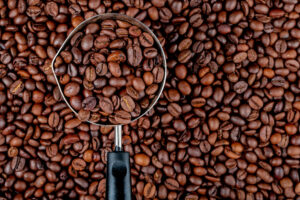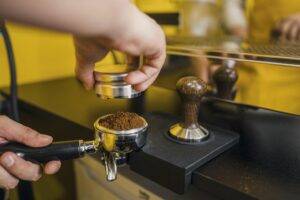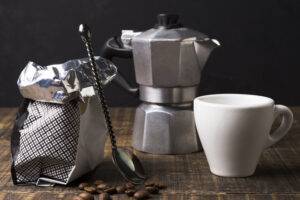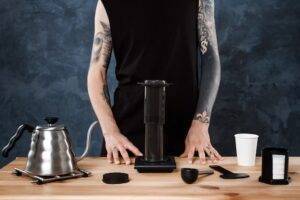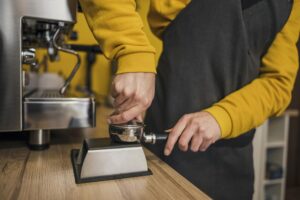
12 Common Mistakes that Can Muck Up Your French Press Coffee
For coffee enthusiasts, the French press is a beloved brewing method that promises a rich and flavorful cup of coffee. However, even with its simplicity, mastering the art of French press coffee brewing can be trickier than it seems. From the grind size to water temperature, there are several common mistakes that can sabotage your efforts to create the perfect cup. In this blog post, we’ll explore 12 of these missteps and how to avoid them to elevate your French press coffee game.
Neglecting the Coffee Bean Quality
The foundation of any great cup of coffee is the quality of the beans. Using stale or low-quality coffee beans will inevitably result in a lackluster brew. To ensure a flavorful and aromatic cup, invest in freshly roasted, high-quality beans. Look for beans with a roast date to guarantee freshness and choose a flavor profile that suits your preferences.
Incorrect Coffee-to-Water Ratio
Achieving the right coffee-to-water ratio is crucial in the French press brewing process. Too much coffee can lead to an overly strong and bitter brew, while too little can result in a weak and insipid cup. The ideal ratio is around 1:15, meaning 1 gram of coffee for every 15 grams of water. Experiment with this ratio based on your taste preferences, but always keep it within the recommended range.
Using the Wrong Grind Size
The coarseness of your coffee grounds is paramount when using a French press. Using a grind that is too fine can clog the filter, making it difficult to press down and yielding a muddled cup. On the other hand, too coarse a grind may result in a weak and under-extracted brew. Aim for a coarse grind to strike the right balance and prevent over-extraction.
Neglecting Consistent Grind Size
Consistency in grind size is equally important. Inconsistent grounds can lead to uneven extraction, causing some particles to over-extract while others remain under-extracted. Invest in a quality burr grinder to ensure a uniform grind size and ultimately a more balanced and flavorful cup of coffee.
Ignoring Water Quality and Temperature
Water quality has a significant impact on the taste of your coffee. Ensure that you use clean, filtered water free of impurities that can alter the flavor. Additionally, pay attention to water temperature. The optimal range for French press brewing is between 195°F and 205°F (90°C to 96°C). Too hot or too cold water can result in an uneven extraction and affect the overall taste of your coffee.
Overlooking the Bloom Process
The bloom process is a crucial step often overlooked in French press brewing. To release the full potential of your coffee, add a small amount of hot water to the grounds and let them bloom for about 30 seconds. This allows gases to escape and promotes even saturation during the brewing process, contributing to a more robust flavor.
Rushing the Brewing Time
Patience is key when using a French press. Brewing your coffee for the recommended time of four minutes allows for proper extraction and flavor development. Rushing this process can lead to under-extraction, resulting in a weak and watery cup. Set a timer and resist the temptation to press down the plunger prematurely.
Pressing Too Hard or Too Soft
The pressing process requires a delicate touch. Pressing too hard can force fine particles through the filter, clouding your coffee and making it gritty. Pressing too softly may result in under-extraction. Aim for a steady and consistent press to avoid these issues and achieve a smooth and well-balanced cup.
Neglecting the Cleanliness of Your French Press
A clean French press is essential for maintaining the purity of your coffee’s flavor. Residue from previous brews can taint the taste of your current cup. Regularly disassemble your French press, clean all its parts, and let them air dry to prevent any unwanted flavors from lingering in your coffee.
Using a Cold French Press
Preheating your French press is a simple step that many overlook. Pouring hot water into the press and letting it sit for a minute warms up the glass, ensuring that your coffee maintains an optimal brewing temperature. Skipping this step can lead to a loss of heat during brewing, resulting in a cooler and less flavorful cup.
Ignoring the Importance of Freshness
French press coffee is best enjoyed immediately after brewing. Unlike some other brewing methods, coffee in a French press can continue to be extracted if left in contact with the grounds. Pour your coffee into a thermal carafe or another container to preserve its freshness and prevent over-extraction from the residual grounds.
Neglecting Experimentation
Every coffee lover has unique preferences when it comes to taste and strength. Don’t be afraid to experiment with different coffee beans, grind sizes, and brewing times to find the combination that suits your palate. The beauty of the French press lies in its versatility, allowing you to tailor your brew to your personal preferences.
FAQs
Q: Why does my French press coffee taste bitter?
A: Bitterness can result from over-extraction due to using a fine grind. Adjust your grind size to be coarser and shorten the brewing time to reduce bitterness.
Q: How can I prevent my coffee from being too weak in the French press?
A: Weak coffee may be a result of using too coarse a grind or not allowing sufficient steeping time. Ensure you use a medium grind and experiment with increasing the brewing time.
Q: Why is there sediment in my French press coffee?
A: Sediment is often caused by using a grind that is too fine. Opt for a coarser grind, or consider using a secondary filter to minimize sediment in your cup.
Q: My French press coffee is lukewarm. How do I make it hotter?
A: Preheat your French press, use boiling water, and maintain a consistent brewing time. If needed, transfer the brewed coffee to a pre-warmed container to keep it hotter for longer.
Q: Can I use pre-ground coffee for a French press?
A: Yes, but for the best flavor, freshly ground coffee is recommended. Pre-ground coffee loses its aromatic compounds quickly. If using pre-ground, ensure it’s a coarse grind suitable for French press brewing.
Q: How do I avoid over-extraction in my French press coffee?
A: Over-extraction happens when coffee grounds steep for too long. Adjust your brewing time, or try a coarser grind to balance the flavors and avoid extracting undesirable compounds.
Q: What’s the ideal water-to-coffee ratio for a French press?
A: A common ratio is 1:15 (coffee to water). Experiment based on your taste preferences, but be cautious not to use too much coffee, as it can lead to over-extraction.
Q: My French press plunger is hard to press down. What am I doing wrong?
A: If the plunger is hard to press, your grind might be too fine. Use a coarser grind to make pressing easier and prevent clogging.
Q: Can I use any type of water for my French press coffee?
A: Ideally, use filtered or bottled water to avoid impurities affecting the taste. Tap water with a strong taste or odor can impact the final flavor of your coffee.
Q: Is it necessary to stir the coffee grounds in the French press?
A: Yes, stirring ensures even saturation of coffee grounds. Use a wooden or plastic spoon to prevent damaging the glass or metal interior of the French press.
Q: How do I clean my French press?
A: Disassemble the French press and rinse the components with warm water. Use a mild detergent if necessary. Ensure all coffee residue is removed to maintain the purity of future brews.
Q: Can I make cold brew in a French press?
A: Yes, a French press can be used for cold brew. Use a coarse grind, mix coffee grounds with cold water, steep in the fridge for 12-24 hours, and then press the plunger down slowly before serving.
Q: My French press coffee sometimes tastes sour. How can I fix this?
A: Sourness often indicates under-extraction. Try using a finer grind or increasing the brewing time to allow for better extraction of flavors. Adjust these variables until you find the right balance.
Q: Can I reuse coffee grounds in a French press for a second brew?
A: While it’s possible, the second brew may be weaker and less flavorful. It’s recommended to use fresh coffee grounds for each brew to ensure a full and robust flavor profile.
Q: Is it necessary to preheat the French press before brewing?
A: Preheating the French press helps maintain a consistent brewing temperature. Rinse the press with hot water and discard before adding coffee grounds and water for brewing.
Q: Can I use a metal French press instead of a glass one?
A: Absolutely. Metal French presses are durable and can retain heat well. However, be cautious with extreme temperature changes, as some metals may affect the coffee’s taste over time.
Conclusion
Mastering the art of French press coffee requires attention to detail and a willingness to experiment. By avoiding these common mistakes, you can elevate your brewing skills and enjoy a consistently delicious cup of coffee. Remember to start with high-quality beans, pay attention to the grind size and water temperature, and take the time to perfect your technique. With a bit of practice and patience, you’ll be well on your way to savoring the full-bodied and aromatic delights of French press coffee.
Affordable and Efficient: The Best Budget Coffee Makers of 2024
Finding the best coffee maker that doesn’t break the bank can feel like a challenging quest. But with 360CoffeeMaker, we’ve simplified your search for the best home coffee maker that suits your budget. For those who prefer to brew single servings at a time, the best single cup coffee maker of 2024 is undeniably the Keurig K-Mini. Compact, stylish, and efficient, it fits perfectly in any kitchen and caters to the needs of solo coffee drinkers or households where everyone has a different coffee preference.
If you're someone who enjoys a classic brew, the best drip coffee maker of 2024 is the Mr. Coffee 12-Cup Coffee Maker. Not only is it affordable, but it's also easy to use and consistently delivers a flavorful cup. But if you're searching for the absolute best coffee maker overall, look no further than the Black+Decker 5-Cup Coffeemaker. It's affordable, efficient, and provides the perfect balance between traditional brewing methods and modern convenience. Regardless of your choice, these budget-friendly options guarantee a quality brew without the hefty price tag.

